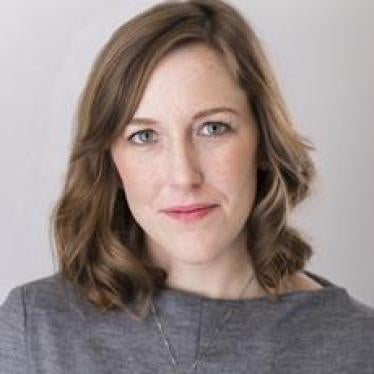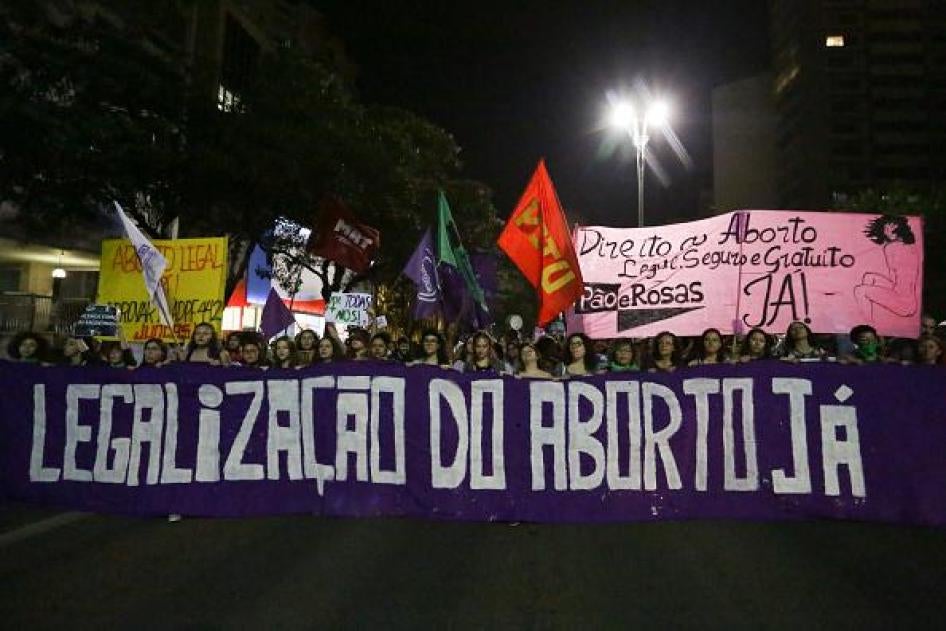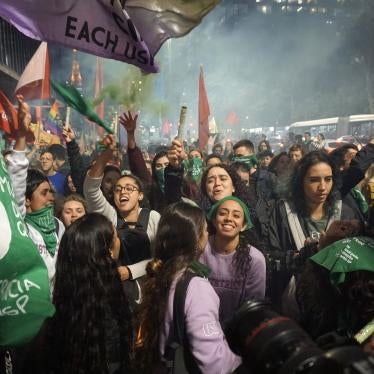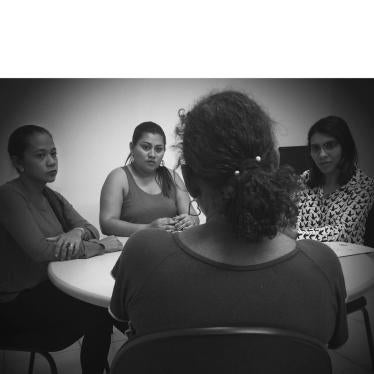Activists around the world will mark the Global Day of Action for Access to Safe and Legal Abortion on September 28. Like several other countries in Latin America and the Caribbean, Brazil is in the midst of a vigorous public debate around abortion following a recent Supreme Court hearing on the issue. Brazil’s criminal code still severely restricts access to legal abortion. But the fact that the issue is being discussed openly, including in the presidential campaign, and that women are coming forward to share their stories of ending a pregnancy, is already a significant step forward.
Under the criminal code in Brazil, abortion is illegal except in cases of rape, when necessary to save a woman’s life, or when the fetus suffers from anencephaly – a fatal congenital brain disorder. Activists have fought for years to ease the country’s abortion restrictions, citing evidence that criminal penalties do nothing to reduce abortion, but instead lead women to risk their health and lives to terminate pregnancies clandestinely.
A case before the Supreme Court could dramatically expand access to safe abortion in Brazil. In March 2017, the Socialism and Freedom Party (Partido Socialismo e Liberdade, PSOL) with support from the nongovernmental group Anis – Institute of Bioethics, filed a petition with the court challenging criminalization of abortion in Brazil in the first 12 weeks of pregnancy.
In August, experts from around the world testified before the court in Brasília, arguing that decriminalizing abortion was a public health and human rights imperative. The hearing was televised, and activists worldwide showed their solidarity with Brazilian women and girls, posting to Twitter and Facebook with the hashtag #NemPresaNemMorta, roughly “Not in prison, not dead.”
A leading reproductive rights activist and law professor, Debora Diniz, faced death threats in the lead-up to the hearing and had to enter police protection. Still, she testified on the first day of the hearing, refusing to be silenced. A Lutheran pastor, Lusmarina Campos Garcia, also received death threats after she spoke at the hearing in favor of reproductive rights. Dozens of religious leaders expressed support for her in an open letter.
Laws that criminalize abortion create a climate of fear and stigma, forcing women and girls with unplanned or unwanted pregnancies to consider their options in isolation, often without support or reliable information from health professionals. But women and girls in Brazil are fighting against this stigma and sharing stories of their experiences with abortion.
One of those women is Rebeca Mendes, who bravely petitioned the Supreme Court for permission to have a safe abortion last year after she became pregnant when her contraceptive method failed. The court dismissed her petition, but she had an abortion abroad. She attended the public hearing last month, and told my colleague: “All the deaths and the problems that occur as a result of illegal abortions are the state’s responsibility. I am very happy that today we can discuss the issue with the people who have the power to make a change.”
Research shows that one in five women has had an abortion by age 40. “Everybody knows a woman who has had an abortion,” Mendes said. “After talking to some friends, I know they all have a story. It may not be their own, it may be a cousin’s or a sister’s, but they all have a story to tell. I’d like our politicians to stop pretending these women do not exist.”
“Rebeca Mendes is part of a process that is occurring rapidly in Brazil, where more women are saying, ‘The criminalization of abortion is wrong,’” Diniz said in a Human Rights Watch video issued ahead of the hearing. Nearly two dozen other women have shared their abortion stories as part of a campaign led by Anis and Think Olga.
“If you think back 20 years ago, 30 years ago, abortion was taboo,” said Maria José Rosado, from the group Catholics for Choice. “I think this taboo is gone.”
The Supreme Court is not likely to move forward on the case until after the presidential elections, or possibly later. A ruling to decriminalize abortion in the first 12 weeks would make history, giving women and girls the right to safely and legally end pregnancies rather than turning to clandestine, and unsafe, methods.
But in the meantime, the issue of abortion is being debated publicly and discussed openly.
Thanks to the courageous members of the movement for abortion rights in Brazil, presidential candidates have to answer questions about reproductive rights. That's good for women and girls, and good for Brazil.









